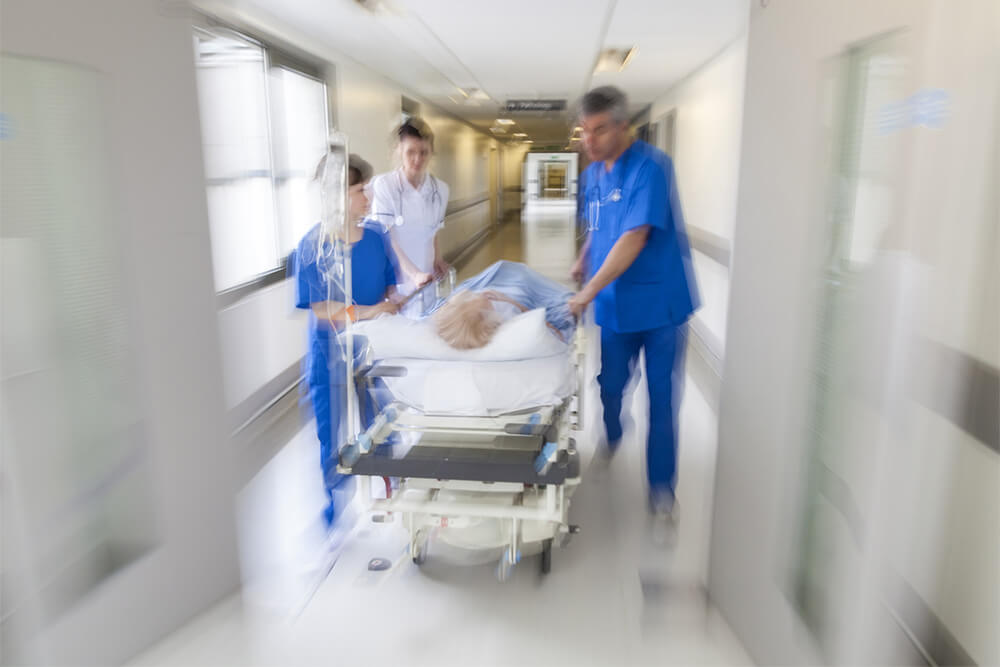- RN Programs
- RN Programs by State
- Alabama
- Alaska
- Arizona
- Arkansas
- California
- Colorado
- Connecticut
- Delaware
- Florida
- Georgia
- Hawaii
- Idaho
- Illinois
- Indiana
- Iowa
- Kansas
- Kentucky
- Louisiana
- Maine
- Maryland
- Massachusetts
- Michigan
- Minnesota
- Mississippi
- Missouri
- Montana
- Nebraska
- Nevada
- New Hampshire
- New Jersey
- New Mexico
- New York
- North Carolina
- North Dakota
- Ohio
- Oklahoma
- Oregon
- Pennsylvania
- Rhode Island
- South Carolina
- South Dakota
- Tennessee
- Texas
- Utah
- Vermont
- Virginia
- Washington
- West Virginia
- Wisconsin
- Wyoming
- Online RN Programs
- RN Bridge Programs
- Articles
- Search Programs

Critical care nurses are the pillars of the healthcare system. They provide specialized care for critically ill patients in intensive care units (ICUs) and emergency rooms (ERs). They consistently face life-and-death scenarios, working long hours and making critical decisions under immense pressure. Their composure and dedication are essential amidst these challenging situations as they administer advanced life support (ALS), treat wounds, and provide patient education and support. While their responsibilities vary depending on the specific setting, critical care nurses typically handle the following tasks throughout their workweeks:
Table of Contents[hide]
1. Assess Incoming Patients
When critically ill patients arrive, every second counts. Critical care RNs must quickly assess their condition under pressure. They then develop and implement care plans to ensure the best possible outcome.
2. Treat Wounds
Critical care nurses are often responsible for treating wounds in injured patients. This involves cleaning and dressing the wound, following instructions from a doctor or more senior nurse.
3. Provide Advanced Life Support
Critical care RNs often deal with life-or-death situations. They are responsible for administering advanced life support (ALS) to critically ill patients, acting quickly while remaining calm and composed under pressure.
4. Observe and Record Vital Signs
Critical care nurses are patients' primary advocates. They observe and record patients' vital signs, such as heart rate, blood pressure, respiratory rate, and temperature. They transmit this information to doctors and surgeons who use it to deliver the best care possible.
5. Assist Physicians
Critical care RNs are not usually directly supervised by doctors. However, they often assist physicians with various tasks, such as preparing patients for procedures, administering medications, and monitoring patient responses to treatment.
6. Check Equipment and Supplies
Critical care RNs are responsible for checking equipment and supplies in the ER, ICU, or wherever else they work. They ensure that doctors, surgeons, and other healthcare professionals have the tools they need when they need them.
7. Administer Medication
Critical care nurses administer medication to patients, including oral medications, intravenous (IV) medications, and injections. They also administer intravenous fluids as needed.
8. Order Tests
Critical care nurses order diagnostic tests, such as blood tests, X-rays, and CT scans, to provide more information to doctors about patients' conditions.
9. Educate and Support Patients' Families
Critical care RNs are there to help patients, which often means helping their families and other loved ones. They educate patients' loved ones about their condition, provide moral support, and answer their questions. They are the compassionate healthcare professionals who strive to help people through very difficult times.
Conclusion
A career as a critical care RN is challenging, demanding, and rewarding. If you are a skilled and compassionate nurse who thrives in a fast-paced environment, this career path might be the perfect fit for you.



